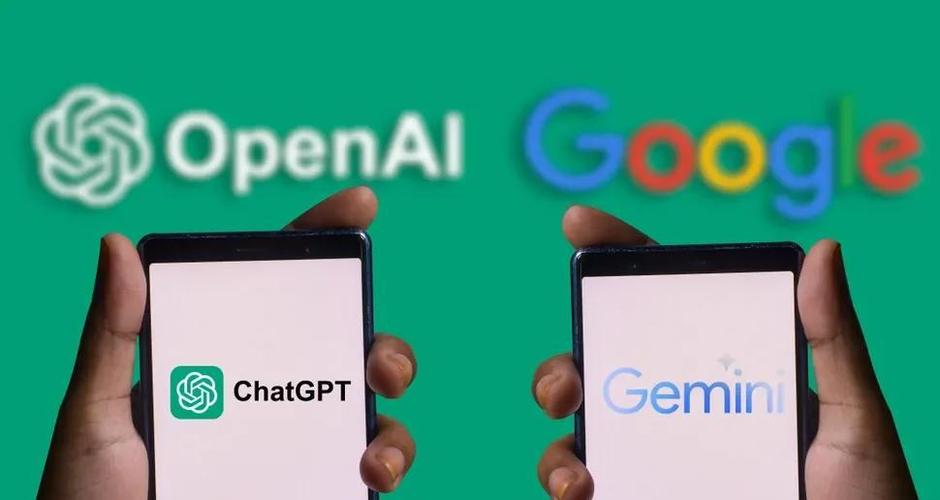
In the competitive arena of the tech business, every move made by OpenAI and Google attracts much attention. Recently, OpenAI publicly and explicitly discussed the possibility of going public for the first time. Its monthly revenue exceeded 1 billion US dollars in July, but it was constrained by insufficient computing power. Google launched four Pixel 10 models integrated with Gemini AI and other products at its annual hardware event. These two major events not only reflect the company's own strategic layout, but also profoundly influence the direction of the technology business landscape.
Since the release of ChatGPT, OpenAI's business scale has expanded rapidly, making it a leader in the global artificial intelligence field. In July alone, its revenue exceeded 1 billion US dollars. This year's revenue is expected to reach 12.7 billion US dollars, achieving a threefold increase compared to last year. The strong growth momentum is driven by the market's high recognition and wide application of its artificial intelligence technology. OpenAI is in talks for a stock sale deal worth approximately $6 billion, corresponding to a valuation of about $500 billion. If it successfully goes public, it will become one of the private technology companies with the highest valuation ever entering the public market, which reflects the extreme optimism of the capital market towards its development potential.
However, OpenAI is also facing severe challenges. The biggest problem is that its computing power is always insufficient. With the continuous iteration of artificial intelligence models and the expansion of application scenarios, the demand for computing power resources such as Gpus is growing exponentially. To address this issue, OpenAI has launched the "Stargate" project, intensified infrastructure construction, and collaborated with Oracle, SoftBank, and others to build the world's largest computing power platform. At the same time, it is considering developing its own AI chips. Even so, the computing power bottleneck still restricts its development speed to a certain extent. For instance, the next-generation large-scale AI model GPT-5 will not be launched this year.
Google unveiled four Pixel 10s integrated with Gemini AI at its annual hardware event, comprehensively showcasing its new achievements in the integration of AI and hardware. The upgrade of smartwatches and headphones has further improved Google's hardware ecosystem. By deeply integrating Gemini AI into hardware products, Google aims to provide users with a more intelligent and convenient interaction experience to enhance its competitiveness in the consumer electronics market. In the highly competitive smartphone market today, empowering products with AI can help Google break through the competition and attract more consumers. The market for wearable devices such as smartwatches and headphones also has huge potential. Google's upgrade measures represent a deep exploration of this market and are expected to capture a larger share in the niche market.
From a business strategy perspective, OpenAI's consideration of going public is a significant step for it to move from a start-up unicorn to a mature business giant. Going public can not only bring it a huge amount of funds, relieve the financial pressure of computing power investment, but also enhance brand influence and standardize corporate governance. Once it goes public, OpenAI will face more complex regulatory pressures and investor return requirements, which also prompts it to seek a better balance between technological innovation and business operations. Google's vigorous development of the integration of AI and hardware is based on its long-term technological layout and market competition demands. By using hardware products as the carrier of AI technology, Google can better collect user data, optimize AI algorithms, and form a virtuous cycle where technology and products promote each other.
In the future technological business competition, if OpenAI successfully goes public, with its technological strength and capital advantages, it will continue to expand in the field of artificial intelligence applications and may bring about changes in more industries such as enterprise-level services, healthcare, and finance. Google's continuous investment in AI hardware is expected to enable it to build a more complete intelligent ecosystem and take the leading position in scenarios such as smart home and mobile office. The new moves of these two tech giants will also trigger a chain reaction within the industry. Other enterprises may follow suit and increase their investment in the integration of artificial intelligence and AI hardware, driving the entire technology business sector towards a new stage of development.

Driven by the Trump administration's push to relax financial regulations and the recovery of investment banking business, the market value of the six major banks in the United States has cumulatively increased by approximately 600 billion US dollars by 2025.
Driven by the Trump administration's push to relax financia…
On Christmas evening, U.S. President Trump posted on social…
According to multiple foreign media reports, the recent fin…
The middle class, once regarded as the cornerstone of Ameri…
On December 19th local time, the US military launched a lar…
The Boxing Day sunshine should have cast a false glow of pr…